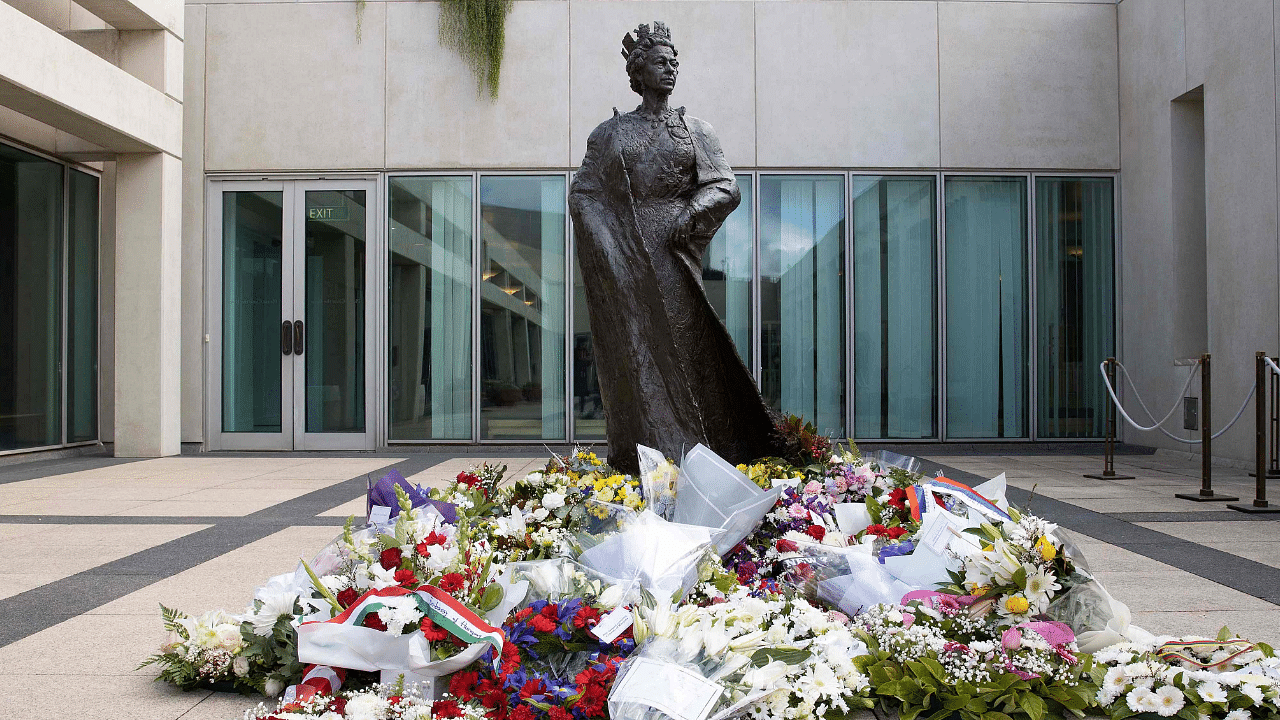
Though Queen Elizabeth II was revered by many in Africa, her death also reignited a different sort of conversation — one that touched on the legacy of the British Empire and the brutality the monarchy meted out to people in its former colonies.
In a younger generation of Africans growing up in a post-colonial world, some lamented that the queen never faced up to the grim aftermath of colonialism and empire, or issued an official apology. They said they wanted to use the moment to recall the oppression and horrors their parents and grandparents endured in the name of the Crown, and to urge for the return of crown jewels — rare massive diamonds — taken from the continent.
“You can look at the monarchy from the point of view of high tea and nice outfits and charity,” said Alice Mugo, 34, a lawyer in the Kenyan capital, Nairobi. “But there’s also the ugly side, and for you to ignore the ugly side is dishonest.”
Mugo said she recently found her grandmother’s “movement pass,” issued when the British colonial government in Kenya declared a state of emergency to help suppress the anti-colonial Mau Mau rebellion. The passes restricted the free movement of Kenyans.
It was while a young Elizabeth was on an official tour of Kenya, in 1952, that she learned of her father’s death and that she would become queen. The clampdown on Kenyans, which began just months after the queen ascended the throne, led to the creation of a vast system of detention camps and the torture, rape, castration and killing of tens of thousands of people.
Those mourning the queen’s death, Mugo said, were not aware of how her government robbed millions of basic freedoms.
Similar sentiments were echoed by a South African political party, Economic Freedom Fighters, which said in a statement that it would not mourn the queen, “because to us her death is a reminder of a very tragic period in this country and Africa’s history.”
The queen, they wrote, was the “head of an institution built up, sustained and living off a brutal legacy of dehumanization of millions of people across the world.”
The debate over how Africans should view the queen went viral when Uju Anya, a Nigeria-born professor at Carnegie Mellon University, posted a tweet in which she wished the queen “excruciating” pain on her deathbed for overseeing a “thieving raping genocidal empire.” When criticism came — including from her own university and from Amazon founder Jeff Bezos — Anya doubled down.
“If anyone expects me to express anything but disdain for the monarch,” she wrote, “you can keep wishing upon a star.”
For some across the continent, the queen was an admirable figure who represented continuity and balance in a changing world. In Ghana, tributes for “Maa Lizzy” were shared on Twitter.
“I grew to admire her over the years, just watching how she carried herself, and her commitment to what she committed to at 25,” said Yemi Adamolekun, executive director of Enough is Enough Nigeria, a network of organizations promoting good governance. “She just kept at it and I think there’s a lot to be admired in that regard.”
African leaders mourned the queen’s passing and offered condolences to Britain and her family. The presidents of Kenya and Ghana also ordered that flags be flown at half-staff for several days, drawing pushback on social media.
Muhammadu Buhari, Nigeria’s president, wrote on Twitter that “The story of modern Nigeria will never be complete without a chapter on Queen Elizabeth II, a towering global personality and an outstanding leader.”
William Ruto, Kenya’s president-elect, called the queen’s leadership of the Commonwealth “admirable.” The association, which was born out of the embers of the British Empire but has lost much of its earlier glory, has still attracted new members like Rwanda, Gabon and Togo, which have had no colonial connections to Britain.
For Naledi Mashishi, 27, whose South African grandmother was forced to sing the “God Save the Queen” anthem each day at school, Elizabeth will forever remain the face of the empire and its bitter legacy in Africa.
In the wake of the queen’s death, Mashishi joined a legion of young South Africans demanding the return of the diamonds that form part of the crown jewels. Cut from the Cullinan, which was discovered in South Africa in 1905 and considered the largest diamond ever found, the rare gemstones sit atop the Imperial State Crown and the Sovereign Scepter, which are both used during the coronation of the British monarch.
Also read: How Queen Elizabeth II will be laid to rest
The stone was a gift from the Afrikaner government to King Edward VII after the South African War, also known as the Anglo-Boer War. But Black South Africans have questioned a minority government’s right to bestow as a gift a gem uncovered during a time of brutal exploitation of Black people. On her 21st birthday in 1947, the queen made a speech from a segregated Cape Town, pledging her service to the Commonwealth.
“I think there’s something very disingenuous about saying the queen or the current royal family have nothing to do with the past,” Mashishi said. “Meanwhile, they are still happily wearing these stolen jewels.”
But with the queen’s passing, observers say that tough conversations about the empire’s past actions in Africa will only continue to gain steam.
“It’s way more than the diamonds,” said Lebohang Pheko, a political economist and a senior researcher at the Trade Collective, a South African think tank. “There are not going to be easy conversations around this anymore.”